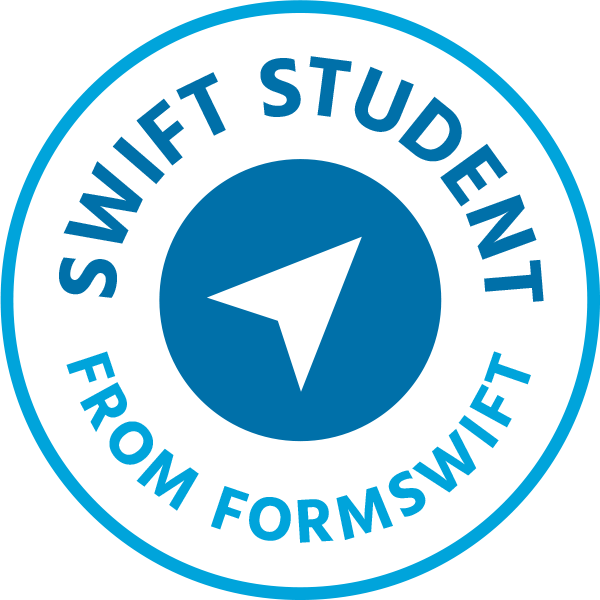Disability Expenses Request Letter
You may be able to get a loan or a grant for disability-related expenses while you attend school.
While there is no guarantee that your school will adjust your financial package to help you with disability-related expenses, federal law allows financial aid officers to consider these expenses when determining the amount of financial aid a student can receive.
If you need special services, personal assistance, transportation, equipment, or supplies that are not provided by other agencies or your school, you may want to make a "Disability Expenses Request" to your financial aid office. If your request is approved, you may receive grant aid or you may be able to take on new federal student loans to help cover your costs.
If your school does not offer an online application form or you cannot reach out to the financial aid office during business hours, you can start the conversation by using the free SwiftStudent Disability Expenses Request, and submitting it to your financial aid office.
Table of Contents
-
Who is eligible to make a Disability Expenses Request?
-
When should I ask the financial aid office about this option?
-
How do I submit a Disability Expenses Request to my school?
-
What documents do I need to include with my Disability Expenses Request?
-
What should I expect after I submit my Disability Expenses Request?
Related Documents
Child Care Allowance Request Letter › Dependent Care Allowance Request Letter › Parental Income Exclusion Request Letter › Special Circumstances Appeal Letter › Emergency Aid Appeal Letter › Satisfactory Academic Progress Appeal Letter › Financial Aid Deadline Extention Request Letter › Supporting Letter For Dependent Care Allowance Request › Supporting Letter For Parental Income Exclusion Appeal ›Who is eligible to make a Disability Expenses Request?
No one can guarantee that you will receive additional aid, but students with a disability are eligible to ask the financial aid office to help cover costs associated with special services, personal assistance, transportation, equipment, and supplies that are reasonably incurred and not provided by other agencies.
Students at all types of institutions (Graduate, 4-year, 2-year and trade) offering federal financial aid can make a Disability Expenses Request to their financial aid office. You can learn more about the federal definition of disability here.
When should I ask the financial aid office about this option?
It may take the financial aid office some time to evaluate your request, so you should ask the financial aid office about this option as soon as possible. While deadlines vary by school, it is best to share your situation promptly to make sure you don't miss out on support or information about the process.
How do I submit a Disability Expenses Request to my school?
Your best next step is to visit your school's financial aid website or to contact your financial aid office. Some schools have online forms, some schools have walk-in hours and others have appointment only options.
If your school does not offer a form online and you cannot reach out to the financial aid office during business hours, you can start the conversation with your financial aid office by submitting the SwiftStudent Disability Expenses Request.
Be sure to use the free SwiftStudent worksheet to help you keep track of your interactions with your financial aid office. You can download the worksheet here.
What documents do I need to include with my Disability Expenses Request?
You should include documents that show out-of-pocket costs associated with your disability, such as special services, personal assistance, transportation, equipment, and supplies that are reasonably incurred and not provided by other agencies or your school. It's up to your financial aid office to determine what documents are required. The goal of these documents is to confirm that the amount you list in your letter is accurate.
Do not submit original documents to your financial aid office. The financial aid office needs to retain documentation for their records, so they can't return them to you. You should submit copies of your documents only.
Be sure to keep a written record of your communications with the financial aid office, including copies of letters and conversation notes. You can download a free SwiftStudent worksheet to help you keep track of names, dates, and conversations.
What should I expect after I submit my Disability Expenses Request?
Your financial aid office may need additional documents or information to make a decision.
Make sure to check your official school email address every day so that you don't miss a response from your financial aid office. You can also reach out to your financial aid office to check on the status of your request.
If your request is approved, the financial aid office will share how much more aid you can expect to receive, if any. If you are offered a loan, it's important to consider the type of loan and how the amount will help you reach educational goals.
If your request is denied, it doesn't mean you're out of options. Ask your financial aid office why the request was denied and what other community or institutional resources are available. Also, don't forget to reach out to the Disability Services Office on your campus.

Create a Disability Expenses Request Letter in minutes with our professional document builder.
Get Started Now!